Code of Conduct
CAICE unites world-class researchers to address the problems of today and train the scientists of tomorrow.
2022 Summer Campaign Code of Conduct
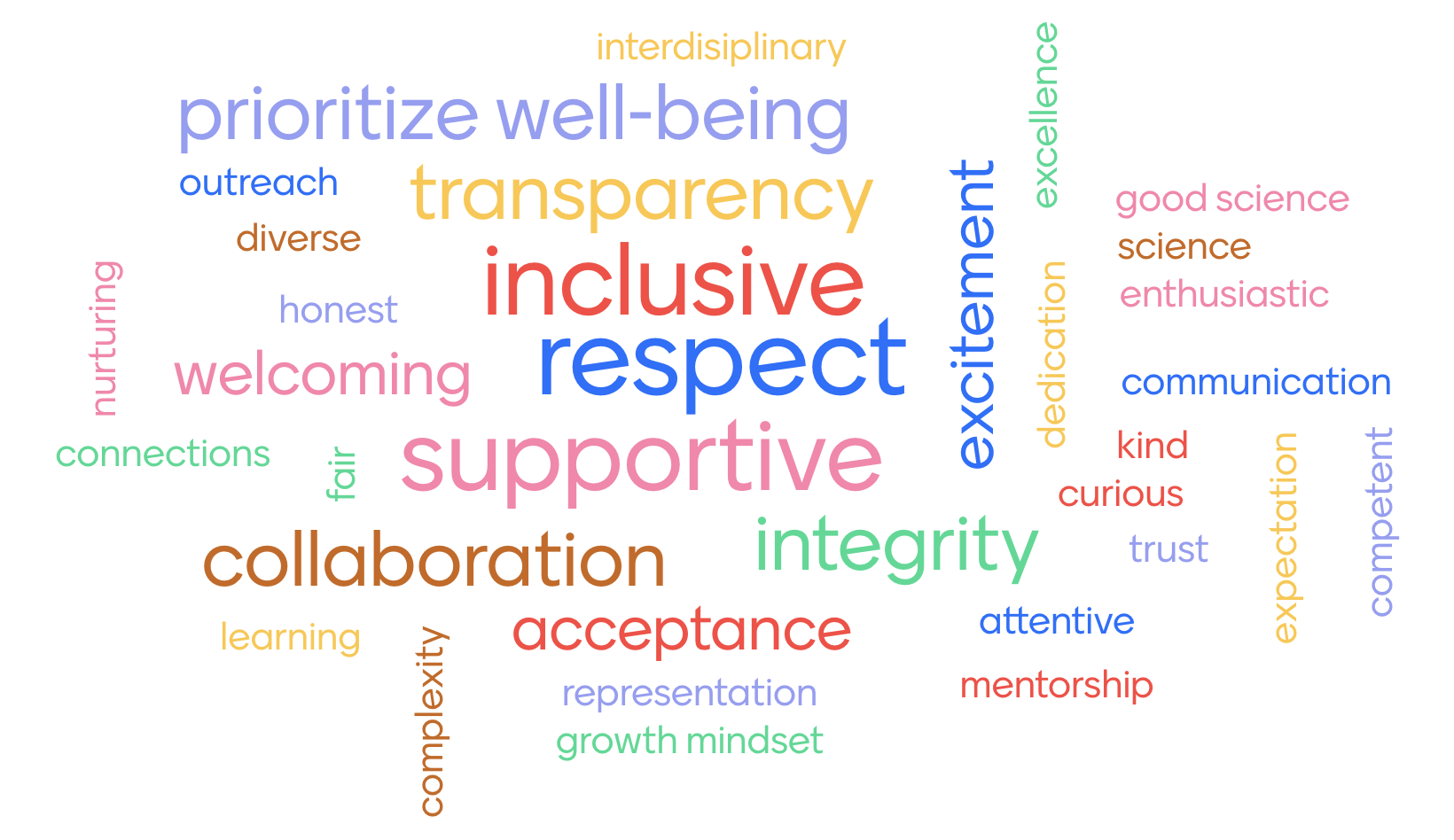
Figure 1. Word cloud of CAICE values created from CAICE member submissions
Overview
The NSF Center for Aerosol Impacts on Chemistry of the Environment (CAICE) values an environment that promotes an appreciation of the perspectives, skills and abilities of everyone. Our community members support, mentor, and learn from one another. We promote respect, excitement and inclusiveness in all activities. We recognize and prioritize safety and well-being, alongside communication, and transparency in all aspects of our research and educational efforts. We are committed to collaborative excellence in our research, education, outreach, and culture. To accomplish this, we recognize that we must adapt our mindsets to be open to change that promotes equitable opportunities. We are committed to creating a culture of integrity and respect, where everyone feels welcome. This code of conduct is a tool for us to create an environment that is safe, supportive, and productive.
This code applies to all faculty, staff, students, volunteers, and/or contractors that participate in the 2022 summer experiment campaign hosted at Scripps Institution of Oceanography, UC San Diego. It encompasses all activities and events that occur on or off campus during the summer campaign, as well as any activities associated with CAICE-related social media content. Any incident that occurs with the context of the summer campaign or within the premises of the campaign workspaces should be reported using the process outlined in this code of conduct.
Do's
- Act ethically and with integrity
- Use the buddy system
- Wear your ID badge at all times on site
- Intervene on behalf of others, don't be a bystander
- Be fair and respectful to yourself and others
- Be welcoming and inclusive of all people
- Manage, supervise, instruct responsibly
- Encourage taking rest when needed
- Ethically conduct research and teaching
- Promote physical and mental safety
- If you see something, say something
- Report concerns immediately
Reporting Code of Conduct Violations
- CAICE summer campaign Ethics Committee (reporting form link)
- Supervisor or instructor
- Director of CAICE, Prof Kimberly Prather (kprather@ucsd.edu)
- Office for the Prevention of Harassment and Discrimination (https://ophd.ucsd.edu/)
Third Party Consultation
Ombudsperson https://ombuds.ucsd.edu/index.html
Dont's
- Engage in harassing or bullying behaviors
- Talk about sex
- Touch your colleagues without consent
- Comment on a colleague’s physical appearance
- Make romantic or sexual advances
- Share other people’s private information
- Retaliate
- Violate local, state or federal laws or university policy
- Engage in unethical research
- Engage in unauthorized use of facilities
Possible Sanctions for Violations
- Warning
- Probation
- Restitution
- Restorative justice processes
- Reassignment of work activities
- Paid or unpaid leave of absence
- Suspension from UC San Diego/CAICE activities and facilities
- Removal from CAICE/UC San Diego facilities
- Expulsion from CAICE summer campaign
- Termination of affiliation with CAICE
Full Code of Conduct
1. Values Statement
The NSF Center for Aerosol Impacts on Chemistry of the Environment (CAICE) values an environment that promotes an appreciation of the perspectives, skills and abilities of everyone. Our community members strive to support, mentor, and learn from one another. We promote respect, excitement and inclusiveness in all activities. We recognize and prioritize safety and well-being, alongside communication, and transparency in all aspects of our research and educational efforts. We are committed to collaborative excellence in our research, education, outreach, and culture. To do this, we recognize that we must adapt our mindsets to be open to change that promotes equitable opportunities. We are committed to creating a culture of integrity and respect, where everyone is welcome.
This code applies to all faculty, staff, students, volunteers, and/or contractors that participate in the 2022 summer experiment campaign hosted at Scripps Institution of Oceanography, UC San Diego. It encompasses all activities and events that occur on or off campus during the summer campaign, as well as any activities associated with CAICE-related social media content. Any incident that occurs with the context of the summer campaign or within the premises of the campaign workspaces should be reported using the process outlined in this code of conduct.
CAICE leadership are united in their commitment to a diverse, inclusive and respectful environment.
This is also inline with the expectations set forth by UC San Diego and the National Science Foundation.
UCSD Principles of Community
https://ucsd.edu/about/principles.html
UCSD Commitment to Harassment Free Environment https://blink.ucsd.edu/sponsor/hr/reaffirm/index.html
The National Science Foundation
Important Notice No. 144: Harassment states that the “NSF does not tolerate sexual harassment, or any kind of harassment, within the agency, at grantee organizations, field sites, or anywhere NSF-funded science and education are conducted” and they “expect all awardee organizations to establish and maintain clear and unambiguous standards of behavior to ensure harassment-free workplaces wherever science is conducted.”
ODI Bulletin No. 18-01: Sexual Harassment Reporting "As an NSF employee you must inform ODI immediately if you become aware of a harassment issue in an NSF-funded program, project, or institution, including a complaint of sexual harassment, whether the issue occurred on campus, in the field, at a conference, at a facility, or elsewhere."
These requirements are consistent with the independent expectations of CAICE.
2. Preventative Active Engagement: fostering a collegial culture
Creating a culture that actively fosters inclusion, safety and belonging is a first line of protection against instances of harassment, discrimination and bullying. This section offers tools all participants can use to help foster a collegial culture within the CAICE summer campaign.
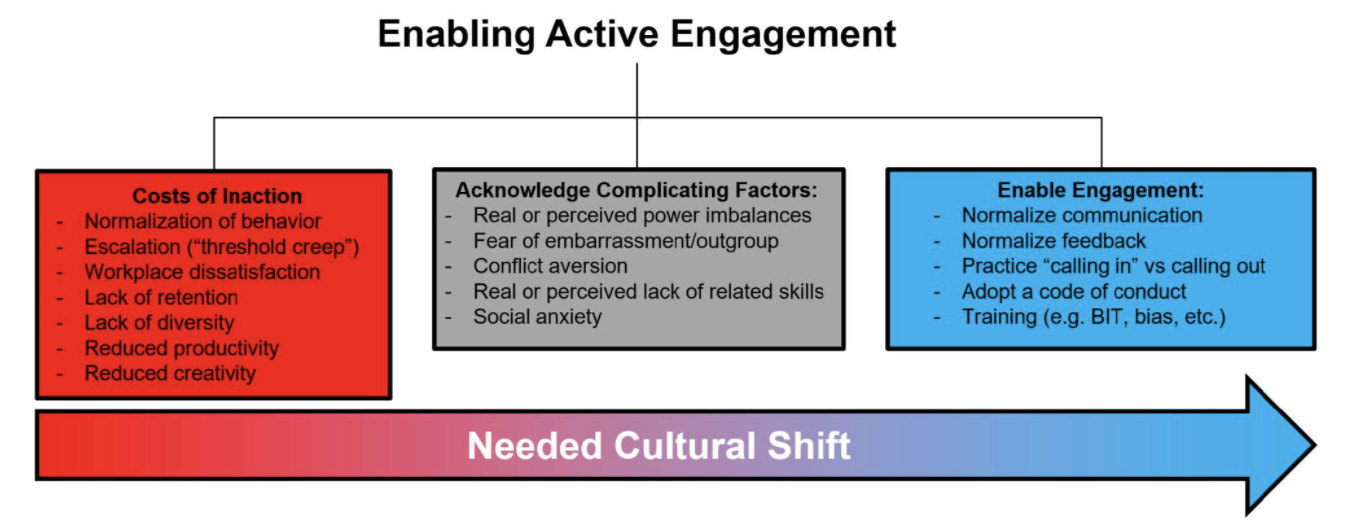
Figure 2: Creating an environment that promotes active engagement requires a shift in conventional academic culture (left-to-right arrow). A combination of simple communication practices, combined with training opportunities and development of codes of conduct within the academy (right hand box) are central to enabling this shift. It is critical to acknowledge factors that complicate this process (center box) and to keep in mind the many costs of doing nothing (left hand box).
Reference: University of Texas, Jackson School of Geosciences, Institute for Geophysics Code of Conduct https://ig.utexas.edu/code-of-conduct/section-3-active-engagement/
Behavior that Promotes Safety and a Collegial Culture
- Act ethically and with integrity
- Be fair and respectful to yourself and others
- Be welcoming and inclusive of all people
- Manage, supervise, instruct, and advise responsibly*
- Encourage taking rest when needed
- Use the buddy system and do not work alone
- Wear your ID badge at all times on site
- Protect, preserve, and responsibly use University resources and property
- Ethically conduct research, teaching, and community engagement
- Promote physical and mental health and safety (ie follow risk assessments and protocols, use the buddy system, rest when needed)
- Intervene on behalf of others - don’t remain silent if you see violations of the code
- Seek out and engage in additional training if needed
- Report concerns immediately
Unacceptable Behavior that Will Result In Disciplinary Action
- Behaviors targeting individuals or groups*, such as
- Harassment, discrimination, racism, sexism, microagressions, bias
- Bullying, aggression, violence
- Stereotyping (including assumptions about classical gender roles)
- Misogyny, misandry
- Exclusionary or offensive comments
- Other harmful behavior that is intended to intimidate, belittle, humiliate, or threaten
- Talking about sex while at work
- Touching your colleagues without consent
- Commenting on a colleague’s physical appearance
- Making romantic or sexual advances
- Sharing of other people’s confidential or private information, including photos, without consent (see social media appendix)
- Retaliation
- Unauthorized use, including misuse, of facilities, equipment, or services
- Illegal or unauthorized possession, use, or sharing of weapons, drugs, or alcohol
- Unethical research, including falsification of data or information
- Theft, property damage, or vandalism
- Violation of University rules
- Violation of Local, State, or Federal Laws
- Harassment, discrimination, racism, sexism, microagressions, bias
- Bullying, aggression, violence
- Stereotyping (including assumptions about classical gender roles)
- Misogyny, misandry
- Exclusionary or offensive comments
- Other harmful behavior that is intended to intimidate, belittle, humiliate, or threaten
*Please note you can read more detailed definitions of these topics in section 5.
Work Hours
CAICE values the well-being of all participants and a key part of wellness is an appropriate balance between work and rest. With the understanding that the summer campaign is a period of intensive work, we cannot neglect our mental and physical need for adequate rest.
As a guiding goal we encourage participants to work on average ~8 hours a day. In an intensive campaign like the one this summer, this is not always possible so we recommend not to exceed a work day of more than 12 hours, not to work more than two 12 hour shifts in a row and to take rest when it is available or needed. We recognize that everyone's schedule is different and encourage you to remain in close contact with your supervisor to ensure you get adequate rest.
If you find yourself feeling burnt out or less productive, please reach out to a supervisor or a member of the Ethics Committee and we will work on finding a resolution where the work still gets done and all parties get appropriate rest.
This work hours goal is for the protection of everyone in the campaign. Exhaustion poses a risk to scientific rigor and to bodily safety when working with complex equipment. Additionally, driving and operating scientific equipment while tired seriously increases the risk of injury to yourself and others. Our goal is to protect the well-being of all participants.
“No Ask” Policy
CAICE follows a No Ask policy as a behavioral guideline. The No Ask guideline means that you cannot ask someone out during the duration of the summer field campaign. Asking out includes hitting on, expressing interest, and making advances.
Roommate Bill of Rights
As a part of the CAICE Summer Campaign many participants will be staying in UC San Diego community housing. This code of conduct applies to your time spent in university housing. Additionally, we are adopting the ‘Roommate Bill of Rights’ described below:
All participants have the right to:
- Personal privacy
- A clean living environment
- A learning environment free from undue interference in one's room
- Adequate sleep free of disturbances associated with the behavior of roommates and neighbors.
- Free access to one's room, facilities, and belongings without pressure from a roommate
- Personal belongings being respected by roommates
Ethics Committee
The Ethics Committee is a formal ad-hoc committee that is in place to handle any code of conduct violations that occur within the context of the CAICE 2022 Summer Campaign. The Ethics Committee will review reports that are received and determine next steps. The Ethics Committee is committed to protecting anyone who reports code of conduct violations and will do its best to protect the private information of all involved parties while still abiding by UC San Diego mandated reporting policies and ensuring transparency in process and consequences.
The members of the CAICE 2022 Summer Campaign Ethics Committee are:
- Paul DeMott (Paul.Demott@colostate.edu)
- Chris Lee (leechris@ucsd.edu)
- Chris Cappa (cdcappa@ucdavis.edu)
- Jeanette Starpine (jmcconnell@ucsd.edu)
- Julie Dinasquet (jdinasquet@ucsd.edu)
If needed, the Ethics Committee will engage a graduate student and/or postdoc Ethics Committee Representative in the discussion of next steps regarding a code of conduct violation. These representatives will only be shown an anonymized version of the report. The Ethics Committee Student and Postdoc Representatives are:
- Samantha Kruse (smkruse@ucsd.edu )
- Raymond Leibensperger (rleibens@ucsd.edu)
Each member of the Ethics Committee engaged in training with the Office for the Prevention of Harassment and Discrimination to prepare for this role.
Third Party Consultation - Ombudsperson
The Ombuds are a neutral third party and they are not university mandated reporters. They are available for you to speak with confidentially about any concerns you have. The Ombuds are aware of the CAICE summer campaign and are ready to assist you however they can.
They are best reached by phone and you can find their contact details here: https://ombuds.ucsd.edu/contact-us/index.html
Bystander Intervention
Bystander Intervention is recognizing a potentially harmful situation or interaction between other individuals and choosing to respond in a way that could positively influence the outcome.
All participants need to engage in bystander training before engaging in work during the summer campaign. There are several avenues to satisfy this requirement.
- AdvanceGeo Bystanding Training at the CAICE Annual Meeting
- Proof of attendance at a bystander training taken outside of CAICE
- Right To Be Bystander Intervention Training
- Right To Be Bystander Intervention Guide
- Other credible training, approval to be given by the Ethics Committee
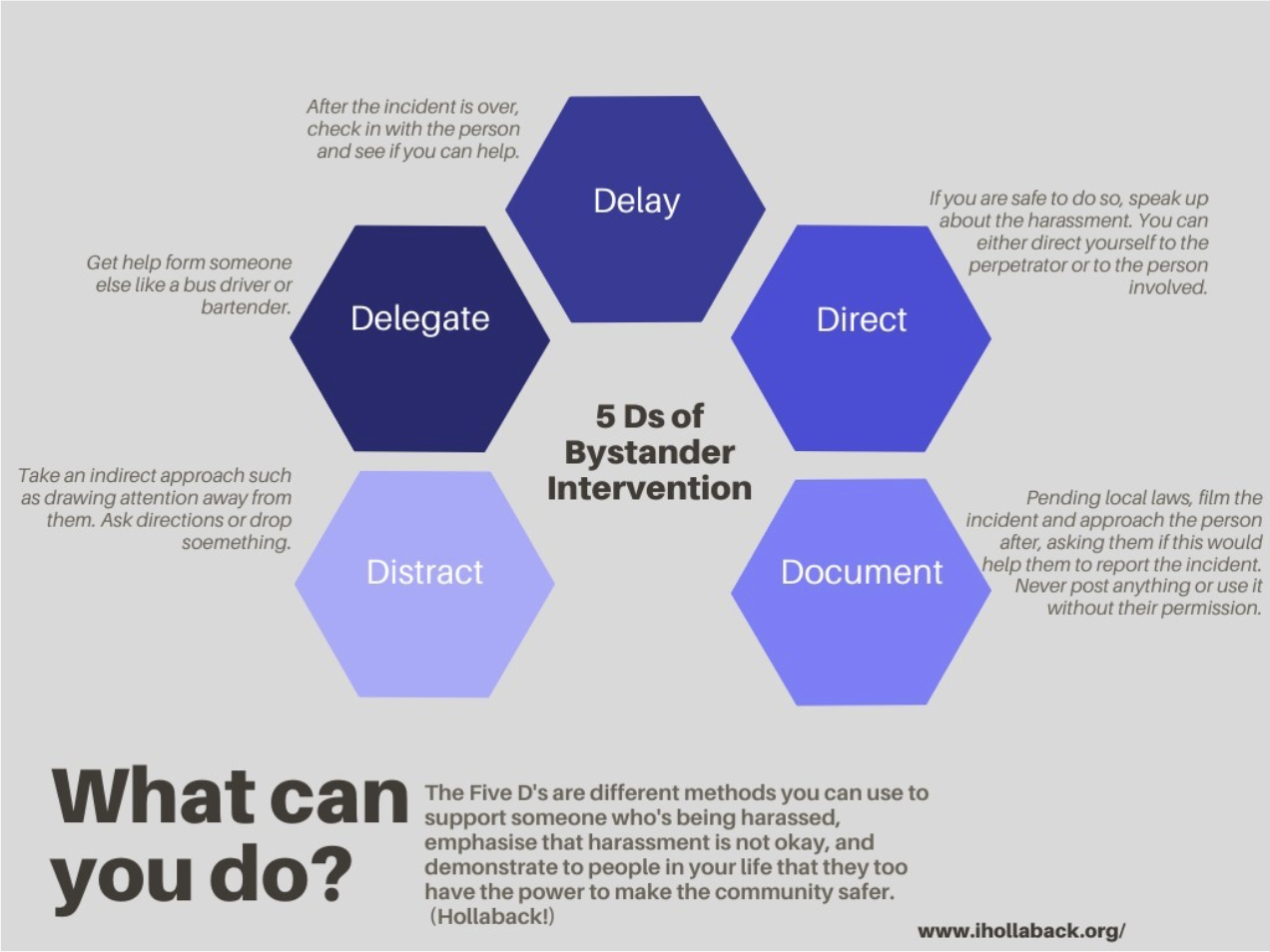
Figure 3: When you witness an incident of misconduct, choose one of the 5-D’s of bystander intervention.
3. Reporting Mechanisms
We are thankful for the voice and courage of anyone who reports a code of conduct violation. Your voice helps keep our environment safe for all participants. We encourage you to use this reporting mechanism for anything you see that may be creating an unsafe environment or be in violation of the code of conduct, no matter how big or small the issue and no matter who is involved. We are committed to keeping the environment safe, supportive and productive.
Outlined below are the reporting mechanisms available to you through both UC San Diego and through the CAICE 2022 Summer Campaign Ethics Committee.
Briefly you can report conduct violations to any of the following:
- the CAICE summer campaign Ethics Committee (Submission form link)
- a supervisor or instructor
- the Director of CAICE, Prof Kimberly Prather (kprather@ucsd.edu)
- the Office for the Prevention of Harrassment and Discrimination (Title IX office) https://ophd.ucsd.edu
Retaliation
Any retaliation for reporting violations will NOT be tolerated. Retaliation is a serious offense, it is unlawful and violates UC San Diego policy. UC San Diego policy protects whistleblowers from retaliation
Incidents that violate Title IX or UC San Diego Policy
Incidents that violate Title IX or UC San Diego Policy should be reported directly to the Office for the Prevention of Harassment and Discrimination.
Please note that all UC San Diego employees who are considered 'Responsible Employees' (which includes everyone except confidential resources) must report any Title IX violations directly to the Office for the Prevention of Harassment and Discrimination. You can learn more about 'Responsible Employees' here.
Any incidents that violate Title IX which are reported to the Ethics Committee will be immediately reported to the Office for the Prevention of Harassment and Discrimination in accordance with university mandated reporting. Information about the process the university follows after a report is made can be found on the OPHD website.
In addition to reporting Title IX violations to the UC San Diego Office for the Prevention of Harassment and Discrimination, the Ethics Committee will undergo its own process for resolving code of conduct violations, including those that violate Title IX. Any incidents that violate Title IX will be resolved in collaboration with the Office for the Prevention of Harassment and Discrimination. This process is described below.
Incidents that violate the CAICE 2022 Summer Campaign Code of Conduct
Violations of the code of conduct can be reported to the Ethics Committee via
- CAICE 2022 Summer Campaign Code fo Conduct Violation Reporting Form
- This fillable PDF and sent to any member of the ethics committee. Please only use the fillable PDF if you would like to keep any member(s) of the Ethics Committee from viewing the report and specify this in the report.
Why Written Reports?
Written reports are needed for the Ethics Committee to review and follow up on the violation. Written reports can be submitted by anyone who was told about the incident as well as by the victim or any witnesses.
Confidentiality & Anonymity
While we cannot guarantee confidentiality, the Ethics Committee will do its best to protect the private information of all involved parties while still abiding by the UC San Diego mandated reporting policies and ensuring transparency in process and consequences. Our goal is to be as transparent as possible while still protecting the anonymity of reporters.
While we do accept anonymous reports, please be aware that the actions the Ethics Committee can take with an anonymous report are very limited. With anonymous reports, we are only able to share a generalized version of the report with all participants. We are not able to take any disciplinary action.
To support you in making the decision about whether and how to report a violation, we are working with the Ombuds. The Ombuds are a confidential, neutral third party and they are not university mandated reporters. They are available for you to speak with confidentially about any concerns you have. The Ombuds are aware of the CAICE summer campaign and are ready to assist you however they can.
You can get in touch with them here: https://ombuds.ucsd.edu/contact-us/index.html
What Happens Once A Report Is Made to the Ethics Committee?
Throughout this process CAICE is committed to supporting the reporter and the reporting party will be kept informed at every step of the process.
- As soon as possible, and not longer than 48 hours after the report is made, the Ethics Committee will reach out to the person who made the report, acknowledge that the report has been received and ask if there is anything they need from the Ethics Committee while the matter is investigated.
-
- For serious violations the committee may intervene immediately. (Example: move office / workspace or suspend access to facilities of the perpetrator)
- This action will be communicated to the reporter, the accused person and the accused person’s supervisor, if applicable
- If the Ethics Committee receives a report about a violation that took place before the 2022 summer campaign (ie last year) it will pass the report on to the CAICE Management Team. The Ethics Committee will not take further action.
-
- Within a week the next steps will be outlined. This process will include the Ethics Committee:
- Reaching out to the person who filed the report
- Reaching out to anyone else who was there
- Reaching out to the person accused
- General information gathering
- If needed, the Ethics Committee will engage an additional, pre-determined Student and Postdoc Ethics Committee representative in their discussion using a fully anonymized report.
- The Ethics Committee then proposes next steps to the reporter and seeks agreement - adjustments will be made until both parties agree.
- The Ethics Committee then proposes any consequence to the CAICE Management Team for approval - adjustments will be made until both parties agree. Any changes will also be communicated to the reporter and agreement sought before moving forward.
- Next steps and consequences, if any, are enacted
- For transparency and to prevent future violations a fully anonymized discussion of the situation and consequences will be communicated to all participants.
- Home institutions and supervisors of the perpetrator are notified of the violation and consequences, if they have not already been contacted. If applicable, funding agencies for the perpetrator will be notified as required.
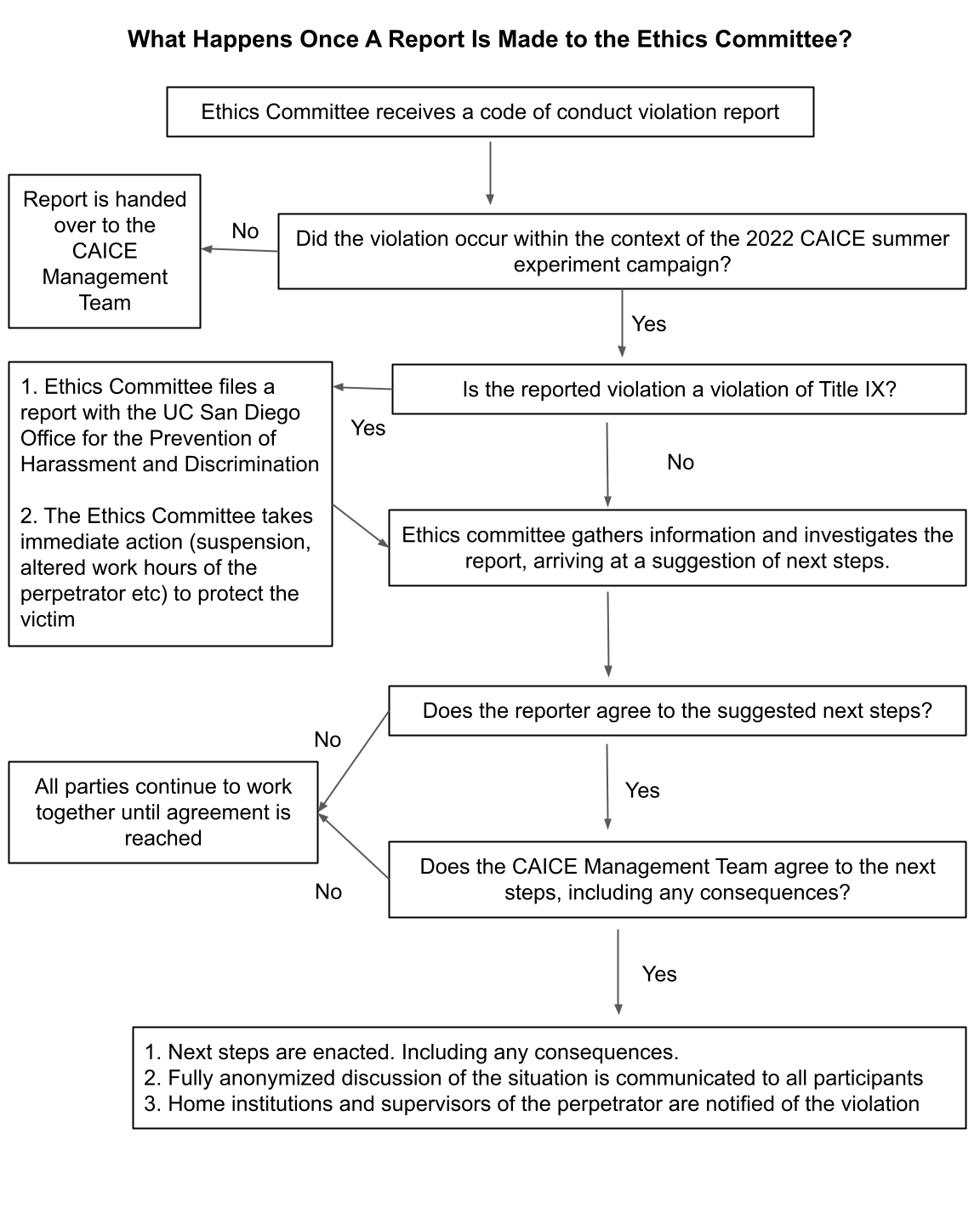
Figure 3: Flow chart showing the process the CAICE 2022 summer campaign ethics committee will take after a report is filed.
Possible Consequences
Sanctions for unacceptable behavior will be commensurate with the nature and severity of the offense, whether violations have been persistent, and the impact of the offense on any other people involved. Sanctions may include one or more of the following:
- Warning
- Probation
- Restitution
- Reassignment of work activities
- Paid or unpaid leave of absence
- Suspension from UC San Diego/CAICE activities and facilities
- Removal from CAICE/UC San Diego facilities
- Expulsion from CAICE summer campaign
- Termination of affiliation with CAICE
4. Resources
2022 Summer Campaign Ethics Committee
- CAICE Director of Education, Outreach and Diversity, Dr. Jeanette Starpine (jmcconnell@ucsd.edu)
- Senior Scientist, UC San Diego, Dr. Julie Dinasquet (jdinasquet@ucsd.edu)
- Lead Scientist, Colorado State University, Dr. Paul DeMott (Paul.Demott@colostate.edu)
- CAICE Managing Director, Dr. Chris Lee (leechris@ucsd.edu)
- Lead Scientist, UC Davis, Prof. Chris Cappa (cdcappa@ucdavis.edu)
CAICE Management Team
- Director, Prof. Kimberly Prather (kprather@ucsd.edu)
- Co-Director, Prof. Vicki Grassian (vgrassian@ucsd.edu)
- Associate Director, Prof. Tim Bertram (timothy.bertram@wisc.edu)
- Managing Director, Dr. Chris Lee (leechris@ucsd.edu)
CAICE Executive Team
- Director of Education, Outreach and Diversity, Dr. Jeanette Starpine (jmcconnell@ucsd.edu)
- Innovation Lead, Prof. Skip Pomeroy (rpomeroy@ucsd.edu)
- Ice nucleation Lead, Dr. Paul DeMott (Paul.Demott@colostate.edu)
Code of Conduct Violation Reporting Form https://docs.google.com/forms/d/e/1FAIpQLSfomcy5M0_qPxsTLRum97XziKYpM4B_3fkNr9H4ud6I5jSHDg/viewform
Code of Conduct Violation Reporting Form (PDF)
https://caice.ucsd.edu/wp-content/uploads/2022/03/CAICE-Code-of-Conduct-Reporting-Form-Fillable-PDF.pdf
Office for the Prevention of Harassment and Discrimination (Title IX Office) https://ophd.ucsd.edu/about/index.html
Office for Equity, Diversity and Inclusion https://diversity.ucsd.edu/
Ombudsperson office https://ombuds.ucsd.edu/
CARE at SARC https://care.ucsd.edu/about/index.html
Anti-racism resources https://diversity.ucsd.edu/anti-racism-resources/index.html
Right To Be Bystander Intervention Training https://righttobe.org/bystander-intervention-training/
Right To Be Bystander Intervention Guide https://righttobe.info/wp-content/uploads/2022/03/cupxhol_print-design_2022update_v2.pdfhttps://righttobe.org/bystander-intervention-training/
UC San Diego Principles of Community https://ucsd.edu/about/principles.html
UC San Diego Commitment to Harassment Free Environment https://blink.ucsd.edu/sponsor/hr/reaffirm/index.html
UC San Diego Nondiscrimination Statement https://ophd.ucsd.edu/policies-procedures/nps_student.html
UC San Diego Protection of Whistleblowers from Retaliation https://adminrecords.ucsd.edu/ppm/docs/200-14.html
UC San Diego Responsible Employees https://adminrecords.ucsd.edu/ppm/docs/200-14.html
National Science Foundation Office of Equity and Civil Rights https://www.nsf.gov/od/oecr/
National Science Foundation Important Notice No. 144: Harassmentnsf.gov/pubs/issuances/in144.pdf
National Science Foundation ODI Bulletin No. 18-01: Sexual Harassment Reporting https://www.nsf.gov/od/oecr/docs/odi1801.pdf
5. Definitions
Discrimination means unequal or unfair treatment in professional opportunities, education, benefits, evaluation, and employment (such as hiring, termination, promotion, compensation) as well as retaliation and various types of harassment. Discriminatory practices can be explicit or implicit, intentional or unintentional. Discrimination on the basis of race, color, ethnicity, religion, sex, national origin, age, ancestry, disability, veteran status, sexual orientation, marital status, parental status, gender identify, gender expression and genetic information is prohibited under federal statutes, the University of San Diego Non-Discrimination Policy.
Harassment is a type of discrimination that involves actions, words or physical gestures that could reasonably be perceived to be the cause of another person’s distress or discomfort, or which put the safety of the individual at risk. This includes all behaviors that are unwanted by the recipient, which have the purpose or effect of violating the recipient’s dignity, marginalizing an individual either personally or professionally, or which create an intimidating, hostile, degrading, humiliating or offensive environment. It applies not only to direct interactions, but also other forms of communication including social media. These acts may include epithets, slurs, or negative stereotyping based on gender, race, sexual identity, or other categories, as protected by U.S. federal law. Also included are threatening, intimidating, or hostile acts; stalking; denigrating jokes and displays; or circulation of written or graphic material that denigrates or shows hostility or aversion toward an individual or a group. It becomes unlawful where enduring it becomes a condition of continued employment or when the conduct is severe or pervasive enough that a reasonable person would consider the work environment to be hostile.
Sexual harassment includes any unwanted and/or inappropriate sexual remarks or physical advances, sexual advances, requests for sexual favors, and other verbal or physical harassment of a sexual nature. Sexual harassment violates Title VII of the Civil Rights Act, Title IX of the Education Amendments, and the University of California Policy on Sexual Violence and Harassment.
Bullying is the repeated use of force, threat, or coercion to abuse, intimidate, or purposefully dominate others in the professional environment based on a real or perceived power imbalance. These actions can include abusive criticism, humiliation, the spreading of rumors, physical and verbal attacks, isolation, undermining, and professional exclusion of individuals through any means.
Microaggressions are the everyday verbal, nonverbal, and environmental slights, snubs, or insults which communicate hostile, derogatory, or negative messages to target persons based solely upon their group membership. These messages may invalidate the group identity or experiential reality of targets, marginalize or demean them on a personal or group level, communicate they are lesser human beings, suggest they do not belong, threaten and intimidate, or relegate them to inferior status and treatment. Micro-aggressions are less overt and are often related to discrimination, harassment or bullying, but may also occur in well-intentioned individuals who are unaware that they have engaged in an offensive act or made an offensive statement.
Bias incidents are acts of conduct, speech or expression that target individuals and groups based on certain characteristics such as race, religion, national origin, gender identity, gender expression, age, disability and sexual orientation. Examples of bias incidents include:
- A public speaker who makes homophobic comments about members of the LGBT community.
- Anti-Semitic or Islamaphobic flyers distributed on campus.
- Sexist or racist jokes told in public.
- Verbal insults directed toward a person of color.
- Defaming emails sent to a student cultural organization.
Some bias incidents may violate university nondiscrimination policies, the Student Conduct Code or other university policies. Other acts of bias may either not be severe enough to violate policy or be protected expressions of speech. The protection of freedom of expression, including controversial speech and sometimes even offensive or hurtful words, is vital to a community of teachers and learners. Nevertheless, personal threats or other acts of misconduct violate university policies and those policies will be vigorously enforced. You should report bias incidents so the university can determine if policies have been violated and support persons who feel victimized. UC San Diego strives to maintain a welcoming and inclusive environment free from incidents motivated by bias.
Buddy System using the buddy system means that you do not work alone and that both you and your buddy support and look out for each other.
Title IX No person in the United States shall, on the basis of sex, be excluded from participation in, be denied the benefits of, or be subjected to discrimination under any education program or activity receiving Federal financial assistance.l
Title VII makes it unlawful to discriminate against someone on the basis of race, color, national origin, sex (including pregnancy, sexual orientation, and gender identity) or religion.
Responsible Advising is a collaborative relationship between a student and an academic advisor. The intent of this collaboration is to assist the student in developing meaningful research, educational and career goals that are consistent with personal interests, values and abilities. Advisors provide individualized attention to promote each student's success. An advisor can share knowledge, experience and insight that is beneficial to the student. Some examples of advising include:
- Provide timely research, educational and well-being support to students during the campaign
- Clarify campaign requirements, procedures, and goals as needed
- Assist the student in identifying appropriate resources
- Facilitate relationships between the student and other individuals who may provide assistance
- Uphold the academic standards of CAICE and UC San Diego
6. Appendix
Social Media Policy
Sharing the work that CAICE is engaged in throughout the 2022 Summer is an important part of our outreach and science communication efforts. However, this must be done in a manner that abides by the code of conduct, does not compromise any ongoing experimental work, and is respectful of all involved. CAICE will not be monitoring individual social media accounts, but asks that all participants abide by this code of conduct and report any violations.
- Do not share unpublished data
- Do not post someone’s photo without their consent
Any social media that comes from the main CAICE accounts will also abide by this code of conduct. Plus, all participants will be asked to fill out and sign the media release form, indicating the consent or lack of consent to be photographed and included on CAICE social media and blog posts.
[Example] Media Release Waiver
I _____________________________ agree/do not agree (circle one) to authorize the Regents of the University of California and their appointed agents to photograph, videotape, audio record, televise, duplicate and/or transfer to present or future technology for the purposes of the CAICE 2022 Summer Campaign public relations and marketing. To promote CAICE we agree
that the Regents of the University of California its authorized agents, employees and assignees may use the photographs, videotapes, and/or audio recordings prepared there from, to produce, exhibit, publish, or distribute in any positive manner as they deem fit. No compensation will be paid for this use. I understand that my name, hometown or country, honors, and photographs may be used or be considered for use, for future CAICE information items, including news releases.
Your Signature ________________________________________ Date _________________
Power Imbalances
At their best, scientific academies are where discovery and learning occur through a combination of diligent work and collaboration. However, the highly competitive and hierarchical structures of academia also create susceptibilities for abuse of power and bullying. The traditional graduate student model of working in a research specialty under the close supervision of a graduate advisor depends on good faith. Qualifications, such as seniority and supervisory capacity, endow certain individuals with greater authority to affect the career outcomes of their colleagues and students. This requires diligence to avoid actions that may be perceived as bribery, coercion, malice, or indifference. Personal favors should never be proposed in exchange for advice, collaboration, or recommendation. Institute employees should act to prevent abuse of power with regards to:
- Letters of support and recommendation.
- Graduate student and postdoctoral advising.
- Performance review committees.
- Scientific collaborations.
